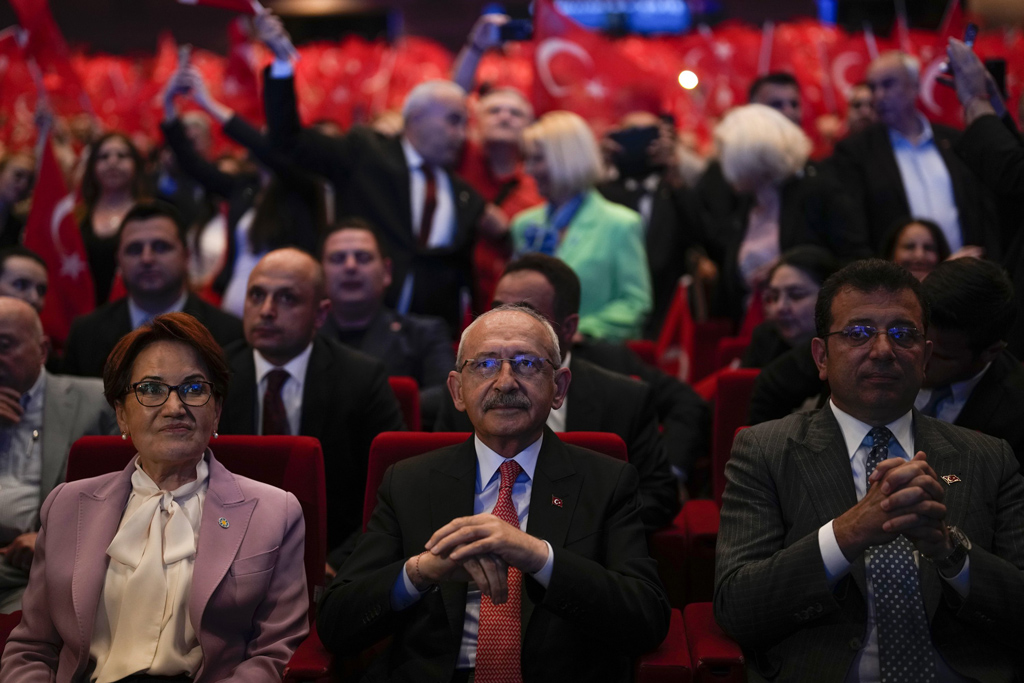Negotiations are already underway among opposition parties regarding next year’s municipal election. The Republican People’s Party (CHP) and the Good Party (IP) are experiencing the tension of party congresses and, having failed to take stock of their latest defeat, their leaders continue to get calls to step down. Accordingly, there is a deepening polarization between supporters and opponents of those party leaders.
Meanwhile, party leaders are attempting to alleviate the pressure for change by asking their movements to focus on the upcoming municipal election. Media personalities close to CHP Chairperson Kemal Kılıçdaroğlu insist that party leaders do not have to resign after losing an election. Indeed, they remind their followers that the Nation Alliance was successful in the 2019 municipal election despite having lost the general election in 2018. Appreciating the strategic importance of the Nation Alliance, the IP’s senior officials are looking for a new deal. Right now, their experience with that alliance has been limited to making unilateral sacrifices.
Lose-lose scenario
Whereas the IP did not win any metropolitan mayoral races in the 2019 election, the Nation Alliance’s winning candidates were all CHP members. Likewise, the movement’s 13-month experience with the "table for six" was limited to a lose-lose scenario. Having left the alliance only to reverse her decision, Meral Akşener barely received 10% of the national vote on election day. Ironically, she was hoping to lead the largest center-right party and serve as prime minister.
In contrast, the four fringe parties, namely the Democracy and Progress Party (DEVA), the Future Party (GP), the Felicity Party (SP) and the Democratic Party (DP), proved to be better negotiators by sending 37 deputies to the Turkish Parliament despite receiving an unknown number of votes. The IP barely outperformed them with 41 parliamentarians. In this sense, the IP paid the price for the Nation Alliance more than others yet also managed to lose the most. It also faced a backlash from nationalist voters because it ended up on the same side as the Peoples’ Democratic Party (HDP), which is widely considered the PKK terrorist organization’s political wing.
Having learned that lesson, IP officials have signaled their intention to renegotiate the terms of their agreement. They argue that their party should field mayoral candidates, expect others to make sacrifices and control some metropolitan municipalities.
In other words, the IP wants an alliance in which it will have the upper hand – not the fringe parties. It wants to see that it is more valuable than those movements. The question is whether the IP can really avoid another lose-lose situation. Could it really win mayoral races by offering voters a third choice while the People’s Alliance remains intact? Could it develop a new political platform to appeal to nationalists after the HDP’s popular support plummeted by three percentage points? Can they push back against the allegation that the opposition could lose all municipalities due to the IP’s demands? Can they make “ambitious” demands to set aside the four fringe parties?
It is possible to argue that the IP will negotiate from a position of weakness since the alliances remain consolidated. The CHP might remind the four fringe parties that it made a sacrifice in the 2023 parliamentary election to secure their support. (It remains completely unknown how their supporters would behave in that case.) Since the municipal elections do not have two rounds, the HDP will also face pressure not to field its own candidates. All those developments could compel the IP to settle for very little.
CHP's problems
The main opposition party does not have fewer problems. Having lost its ideological bearings as part of the Nation Alliance, the CHP finds itself in a crisis. If it moves toward the leftist and social democratic tradition and thus approaches HDP, it will have moved away from the supporters of its nationalist and conservative allies. If the CHP leadership were to restore their party’s Kemalist nationalist factory settings, it might end up losing leftists and right-wingers.
That is exactly why the CHP’s ideological crisis won’t be resolved whether Kılıçdaroğlu stays or leaves. For example, Istanbul Mayor Ekrem Imamoğlu never forged an ideological framework as an alternative to Kılıçdaroğlu’s views. The municipal election campaign, which will kick off in autumn, might help the opposition postpone its problems but would also ensure that all those problems remain unsolved.
The opposition, which cannot overcome internal strife easily, is increasingly likely to lose the mayoral races in Istanbul and Ankara.
[Daily Sabah, June 12, 2023]








